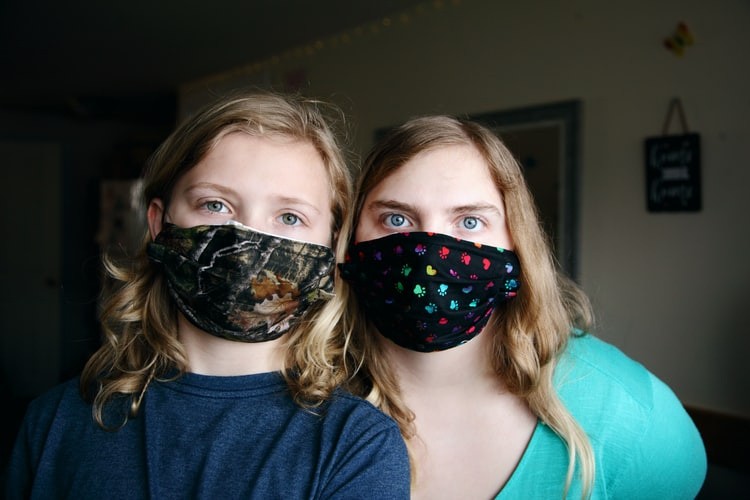New Study Shows Homemade Face Masks Can Be Most Effective
A new study shows the right and effective homemade face masks that can help stop the spread and transmission of coronavirus.

Face masks are very important nowadays. In fact, it is one of the basic medical supplies that immediately ran out in different markets worldwide eversince the World Health Organization (WHO) declared the virus a pandemic. People around the world are wearing face masks to avoid infection.
Moreover, wearing face masks did not only become mandatory to protect oneself but it also becomes a fashion. However, wearing homemade sewn face masks without following the guidelines of the Centers for Disease Control and Prevention might put your health at risk.
There is an increasing study that shows not all face masks are created equal and some are downright ineffective. Instead of protecting yourself against the aerosol from asymptomatic and symptomatic persons, you can easily get infected with the virus if your homemade facemasks were incorrect.
Australian researchers released a new video case study showing how a homemade or cloth face masks can stop viral transmission. The study shows that homemade face masks should have two layers of fabric because if your face mask has just only one layer of fabric then it will not work and protect you against the virus.
In their study, the research team filmed the dispersal of aerosols produced by a person when coughing, speaking, and sneezing using an LED lighting system and a high-speed camera. The person who participated in the study was healthy and does not have any respiratory illnesses. However, it is assumed as an example that the person in the study was asymptomatic.
The researchers reviewed the footage and they ranked the efficacy of three face masks including three-ply surgical face masks. It was discovered that there is a significant relationship between the number of fabric layers and their efficacy.
The more fabric layers your homemade face masks have, the more effective it is to protect you against the aerosol produced by a COVID-19 positive patient whether symptomatic or asymptomatic. This means that a face mask with one layer does not protect you from the spread of the virus or aerosol.
The video footage reveals that a single layer of fabric face masks barely impede the spread of the virus. Additionally, the researchers also noted that the style of sewing also affects the effectiveness of face masks.
Homemade sewn face masks that are within the guidelines of the Centers for Disease Control and Prevention are far more effective than single-ply masks made with cotton t-shirts and hair ties. Overall there are two things that you have to consider in making homemade face masks; the number of the fabric layer, and the materials.
Make sure that you wear the right and effective face masks once you go out and you expose yourself to the public. Wearing a face mask that does not follow the correct guidelines will not protect you from the virus.
Check these out!
Subscribe to Latin Post!
Sign up for our free newsletter for the Latest coverage!
© 2026 Latin Post. All rights reserved. Do not reproduce without permission.













